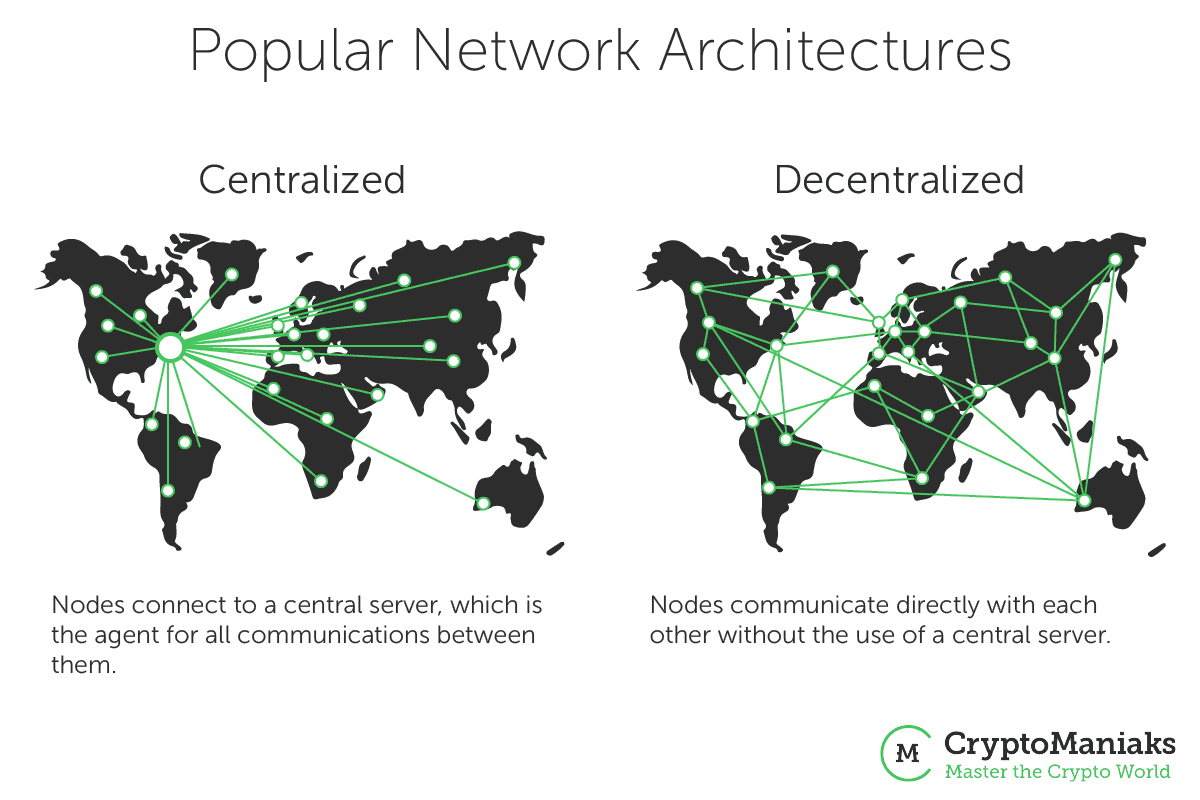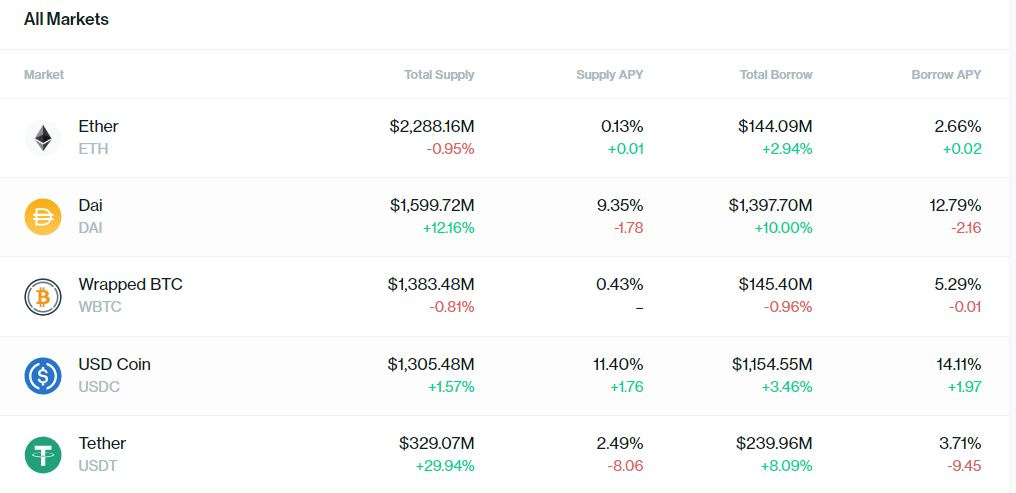The main takeaway from the previous Crypto Crier was that our current monetary system is poised for unprecedented hyperinflation.
This is causing an influx of investors looking for assets to protect them for potential drastic increases in supply. While we explained how blockchain systems innovate traditional finance, the vehicles of change are cryptocurrencies. Cryptocurrencies use the blockchain consensus system to verify all transactions that happen on the network. This means that anyone who wants to participate relies on a global collection of computers to record and store all monetary transactions. This collection of computers makes a decentralized network.
Before we can explore what decentralized networks are, we have to understand how centralization works. Centralization in a network means that a few large providers (or hubs) lay the foundation for network communication. These hubs are not linked to one another and are inefficient with few redundancies. If the provider has a hub outage, the entire region will not function properly until it is fully restored, resulting in interruption of services.
Alternatively, a decentralized network is a lattice of multiple data centers, which we call nodes. If one node has an outage, it can pull information from other unaffected nodes. With blockchain, there are millions of node providers globally with no single point of failure. Therefore, the system can be fully functioning even with many nodes down due to multiple redundancies.
Now incorporate these structures into our current financial world; we have centralized providers controlling the movement of all money. These financial institutions not only hold all of our money, but we pay them for this service. Americans pay $329 annually in bank fees on average. When you consider that half of American households have less than $500 in savings, the impact of banking fees becomes more relevant.
Not only do financial institutions charge you for the service, but they make exorbitant interest by changing credit card balances an average of 23% APR. Contrast that to the current bank savings average rate of .05% APY. Collecting billions in fees while making 22.95% profit off the money in your bank account shows how well centralization works for making them money.
Now, let us move to decentralized finance (DeFi), whose goal is to remove these middlemen who are profiting off of your life savings. The average variable interest rate for USDC on the popular DeFi app Compound is 11.40% APY (as of February 8, 2021). That is 228x the current banking savings rate. As of January 4, 2021, Stable coins are now considered legal notes of settlement per the Office of the Comptroller of the Currency (OCC), the governing body for US currency. Meaning that USD and stable coins are equivalent in the eyes of US law. Why let a few large providers make all of the profit when you can have stable assets making 228x more interest with no added risk.
Current rates at Compound Finance.
Decentralized finance applications such as Compound will create a more equitable financial system. The APY difference between lending and borrowing is a competitive 2.71% with DeFi compared to current financial systems 22.95% profit. Which one sounds better to you?
Get all of your crypto news here in the weekly round-up:
Tesla allocates 7.7% of gross cash to Bitcoin 🚀🚀
Tesla (TSLA) sent shockwaves across the financial markets Monday after a United States Securities and Exchange Commission filing confirmed that the electric vehicle maker has added Bitcoin (BTC) to its balance sheet.
Tesla’s latest Form 10-K filing for the fiscal year ended Dec. 31, 2020 shows a $1.5 billion allocation to Bitcoin. As Bitwise researcher David Lawant points out, Tesla’s Bitcoin exposure represents roughly 7.7% of its gross cash position. Read more.
Ex-OCC Chief Brooks Calls Tesla’s Bitcoin Buy a Bit ‘Scary’ for Rest of World 🤯🎉
The debasing of global currencies is why companies like Tesla (TSLA) and MicroStrategy (MSTR) are investing in bitcoin and that should be troubling for the rest of the world, former acting U.S. Comptroller of the Currency Brian Brooks said Monday on CoinDesk TV.
For people who are invested in bitcoin it's exciting news," said Brooks, who left the OCC last month. "For people who are looking at the rest of the world it's actually a little bit [of] scary news. Read more.
India May Side-Step Parliament to Push Through Crypto Bill: Report 🕺
The Indian government is reportedly planning to fast-track its proposed cryptocurrency bill using the ordinance process. Read more.
Miami Mayor Wants to Move on Municipal Bitcoin Buy This Week 👍
As the cryptocurrency market swells in the wake of Tesla’s Bitcoin investment, Miami Mayor Francis Suarez has suggested that he wants to move forward on investing some city funds in Bitcoin. Read more.
That’s all for the weekly Crypto Crier. If you enjoyed this article, please like and share. As with all of my writing, this is not financial advice and is my opinion. I cannot stress enough how important it is to do your own research on all financial endeavors I hope that just as I have been liberated from the bogs of the current financial systems, you will join me. Let’s build something together.








Keep em' comin!
Great write up!